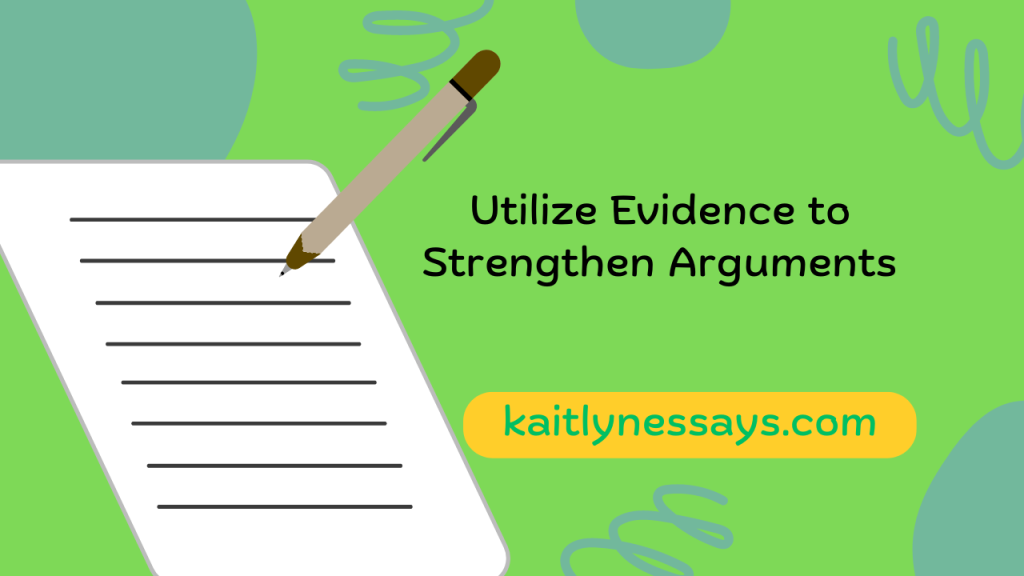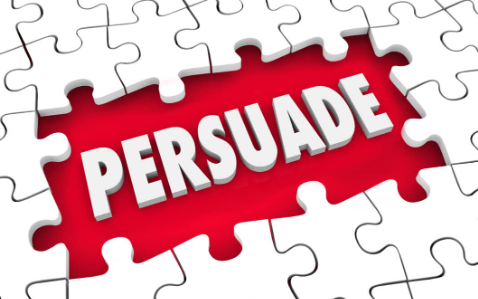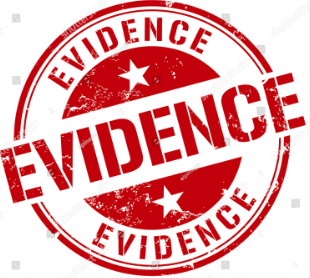
Evidence is the cornerstone of persuasion in discourse and debate. Whether in academia, law, politics, or everyday conversations, the ability to present credible evidence not only bolsters one’s arguments but also enhances their persuasiveness. Utilizing evidence effectively requires a keen understanding of its types, sources, and relevance to the argument at hand. This guide explores the significance of evidence in strengthening arguments, exploring various types of evidence and strategies for their incorporation.
Before exploring the specifics, it’s essential to grasp the fundamental role of evidence in argumentation. Evidence serves as the foundation upon which arguments are built, providing support for claims and propositions. In essence, evidence lends credibility and authority to an argument, compelling the audience to consider it seriously. Without evidence, arguments lack substance and fail to persuade or convince.
Types of Evidence
Evidence comes in various forms, each serving a distinct purpose in bolstering arguments. Broadly categorized, evidence can be anecdotal, empirical, statistical, or expert opinion.
- Anecdotal Evidence: Anecdotes are personal stories or experiences that illustrate a point. While anecdotal evidence lacks generalizability and may not be statistically significant, it can be compelling in humanizing abstract concepts or illustrating the real-world impact of an argument.
- Empirical Evidence: Empirical evidence is derived from observation or experimentation. It relies on direct sensory experience or empirical data to support a claim. Empirical evidence is highly valued in scientific and academic discourse for its objectivity and reproducibility.
- Statistical Evidence: Statistical evidence involves the use of numerical data, charts, graphs, or statistical analyses to support an argument. Statistics provide quantitative support for claims and can illustrate trends, correlations, or patterns within a dataset.
- Expert Opinion: Expert opinion relies on the expertise and authority of knowledgeable individuals in a particular field. Expert opinions carry weight in arguments where specialized knowledge or professional judgment is required.
Incorporating Evidence Effectively

Merely presenting evidence is not sufficient; it must be integrated effectively into the argument to strengthen its persuasiveness. Here are some strategies for incorporating evidence effectively:
Relevance
The most crucial aspect of evidence is its relevance to the argument being made. Irrelevant or tangential evidence can detract from the central thesis and weaken the overall argument. When selecting evidence, it’s essential to ensure that it directly supports the claim being advanced.
Credibility
The credibility of evidence is paramount to its effectiveness. Credible sources lend legitimacy to an argument and enhance its persuasiveness. When citing evidence, it’s essential to consider the reputation and expertise of the source. Peer-reviewed studies, reputable institutions, and recognized experts carry more weight than anecdotal accounts or unreliable sources.
Contextualization
Evidence gains significance when presented within the appropriate context. Providing background information, explaining methodologies, or clarifying assumptions can help contextualize evidence and elucidate its relevance to the argument. Contextualization ensures that the audience understands the significance of the evidence and its implications for the broader discussion.
Counterarguments
Anticipating and addressing counterarguments is a mark of persuasive argumentation. Incorporating evidence that refutes opposing viewpoints demonstrates critical thinking and strengthens the overall argument. By acknowledging and rebutting counterarguments, the arguer builds credibility and persuasiveness.
Examples of Evidence in Different Contexts

To illustrate the application of evidence in strengthening arguments, let’s examine its use in various contexts:
Academic Writing
In academic writing, evidence plays a central role in substantiating claims and supporting arguments. Academic papers rely on empirical research, peer-reviewed studies, and scholarly articles to provide evidence for theoretical propositions or empirical findings. For example, in a research paper on climate change, evidence from scientific studies, climate models, and observational data would be used to support the argument for anthropogenic global warming.
Legal Argumentation
In legal proceedings, evidence is the linchpin of argumentation, determining the outcome of cases. Lawyers marshalling evidence must adhere to strict rules of admissibility and relevance. Legal evidence can take the form of witness testimony, physical exhibits, documentary evidence, or expert opinions. For instance, in a criminal trial, DNA evidence linking the defendant to the crime scene would be crucial in establishing guilt beyond a reasonable doubt.
Political Discourse
In politics, evidence is often wielded strategically to sway public opinion and influence policymaking. Politicians and pundits utilize statistics, expert testimony, and historical precedents to support their policy proposals or critique opponents’ positions. For example, in a debate on healthcare reform, politicians may cite empirical studies on the efficacy of universal healthcare systems in other countries as evidence supporting their policy agenda.
Conclusion
Evidence serves as the lifeblood of persuasive argumentation, lending credibility, and authority to claims. By utilizing various types of evidence and incorporating them effectively into arguments, individuals can strengthen their persuasiveness and enhance their ability to sway opinions. Whether in academia, law, politics, or everyday conversations, the judicious use of evidence is essential for crafting compelling arguments and advancing meaningful discourse. As critical thinkers and communicators, we must recognize the power of evidence and wield it responsibly to engage in informed and constructive dialogue.
Having difficulty expressing your ideas in writing? We are here to help. We specialize in offering high-quality academic writing services, ensuring that your paper is not only well-written but also demonstrates a thorough understanding of the subject. With our experienced professionals assisting you, you can transform any challenging topic into a finely crafted masterpiece.
Frequently Asked Questions (FAQs) About The Role of Evidence in Persuasion
- What is the significance of evidence in arguments?
- Evidence plays a crucial role in arguments by providing support for claims and propositions. It lends credibility and authority to an argument, making it more persuasive and convincing.
- What are the different types of evidence?
- There are various types of evidence, including anecdotal evidence (personal stories or experiences), empirical evidence (derived from observation or experimentation), statistical evidence (numerical data or analyses), and expert opinion (knowledgeable individuals’ viewpoints).
- How can evidence be incorporated effectively into arguments?
- Evidence can be incorporated effectively by ensuring its relevance to the argument, establishing its credibility through reputable sources, contextualizing it within the broader discussion, and addressing counterarguments to strengthen the overall argument.
- What role does evidence play in academic writing?
- In academic writing, evidence is essential for substantiating claims and supporting arguments. It typically comes from empirical research, peer-reviewed studies, and scholarly articles, providing a basis for theoretical propositions or empirical findings.
- How is evidence used in legal argumentation?
- In legal proceedings, evidence is central to argumentation and can include witness testimony, physical exhibits, documentary evidence, or expert opinions. Lawyers must adhere to strict rules of admissibility and relevance when presenting evidence in court.
- What is the importance of evidence in political discourse?
- In politics, evidence is strategically utilized to sway public opinion and influence policymaking. Politicians and pundits use statistics, expert testimony, and historical precedents to support policy proposals or critique opponents’ positions.
- Why is it essential to consider the credibility of evidence?
- Considering the credibility of evidence is crucial because it determines the legitimacy and persuasiveness of an argument. Credible sources enhance the argument’s authority and make it more compelling to the audience.
- How can one anticipate and address counterarguments effectively?
- Anticipating and addressing counterarguments involves acknowledging opposing viewpoints and incorporating evidence that refutes them. By engaging with counterarguments, the arguer demonstrates critical thinking and strengthens the overall persuasiveness of the argument.
- What are some examples of evidence in everyday conversations?
- In everyday conversations, evidence can range from personal experiences (anecdotal evidence) to factual data (statistical evidence) or the opinions of experts. For example, citing personal experiences to illustrate a point or referencing news articles to support an argument.
- How can individuals responsibly wield evidence in discourse and debate?
- Individuals can responsibly wield evidence by ensuring its accuracy, relevance, and credibility. They should strive to engage in informed and constructive dialogue, using evidence to enhance understanding and facilitate meaningful discussions.
